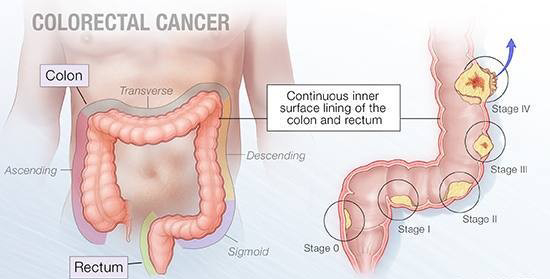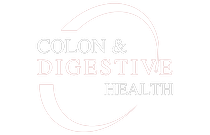Don’t Wait Too Long: The Right Age to Start Colorectal Cancer Screenings

When it comes to colorectal cancer, timing can mean the difference between life and death. Yet, many Americans are waiting too long to get screened despite clear evidence that early detection can significantly improve survival rates. Recent data shows that, on average, adults in the U.S. are getting their first screening at 58—13 years later than recommended.
So, when should you start getting screened for colorectal cancer? According to the American Cancer Society (ACS), most adults should begin screening at age 45. By addressing this screening gap, we could dramatically reduce colorectal cancer mortality and help people lead longer & healthier lives.
Why Early Screening for Colorectal Cancer Matters
Like many forms of cancer, colorectal cancer develops silently. In its early stages, symptoms are often non-existent, which makes routine screenings crucial. Most colorectal cancers cause no symptoms in the early stages when it’s easily treatable,
Screenings can save lives by detecting cancer when it is still localized. The survival rate for colorectal cancer diagnosed in the early stages is over 90%, compared to a mere 13% for cases caught in later stages once the disease has spread.
The Recommended Age for Screening
While many may think that colorectal cancer is primarily an older person’s disease, the ACS recommends that most adults should begin screening at age 45. However, those with a family history of colorectal cancer or related risk factors should start even earlier. For example, if someone’s father was diagnosed with colorectal cancer at age 42, their screenings should begin at 32. Prompt detection is crucial for lowering mortality rates, with studies showing that timely screenings may reduce mortality by up to 77%.
Barriers to Screening: Why People Delay or Avoid It
Despite the clear benefits of early screening, nearly 40% of Americans don’t get screened for colorectal cancer at all. Why is that? Several factors contribute to the problem, including fear of the procedure, lack of access to healthcare, and financial concerns. In some communities, there is also a stigma surrounding colonoscopies.
Colonoscopies are perceived as uncomfortable and invasive, discouraging many people from scheduling one. However, colonoscopies are the most well-known screening method and are far from the only option. Non-invasive techniques, such as stool tests or CT colonography, are available and can provide effective alternatives for those apprehensive about the procedure.
Screening Options Beyond Colonoscopy
While a colonoscopy remains the gold standard for colorectal cancer screening, several other methods can make the process more comfortable and less invasive. For individuals who are not ready for a colonoscopy, there are options like:
- Stool-based tests require individuals to provide a stool sample, which is then analyzed for signs of cancer. Two tests are available to detect blood in the stool, which may be a sign of cancer: the fecal immunochemical test (FIT) and the guaiac-based fecal occult blood test (gFOBT).
- CT Colonography (Virtual Colonoscopy): This non-invasive procedure utilizes X-rays and a computer to generate detailed images of the colon. While it requires some preparation, like a colonoscopy, no scopes are involved.
Both alternatives allow patients to choose a method that fits their comfort level. However, it’s important to consult with a doctor to determine the best option for your risk factors.
Overcoming the Fear of Screening
Fear of the procedure is one of the most common reasons people avoid colorectal cancer screening. However, the reality is often far less daunting than the myths surrounding colonoscopies. The doctors suggest the procedure is generally safe and quick, which typically involves minimal discomfort.
Furthermore, technological advancements have made colonoscopies safer than ever, and the recovery time is relatively short. In most cases, patients can resume their usual activities the following day. For those who remain hesitant, considering a less invasive screening method may help ease anxiety.
Colon Cancer and Diverse Populations
One of the most dangerous misconceptions surrounding colorectal cancer is the belief that it primarily affects older white men. Colorectal cancer impacts men and women at nearly the same rate, with African Americans showing the highest rates of incidence and mortality occurring among all ethnic groups in the United States.
Moreover, younger people are increasingly at risk. While the overall rate of colorectal cancer in the U.S. has decreased due to increased screening in older adults, rates among individuals under 50 have been rising by 1-2% per year since the 1990s. This trend highlights the importance of screening earlier and addressing any risk factors, such as family history, as soon as possible.
When to Stop Screening
Screening for colorectal cancer is not a lifelong necessity. Most people can stop undergoing routine screenings between the ages of 75 and 80, depending on their health status and personal risk factors. After this point, the likelihood of colorectal cancer being a major health risk decreases. In contrast, the risk of complications from the screening procedure increases with age.
However, individuals over 75 should consult their doctor to determine whether continuing screenings are appropriate for their health needs.
The Role of Family History and Personal Risk Factors
Understanding your family history and personal risk factors is critical for colorectal cancer screening. Those with a family history of colorectal cancer, polyps, or related cancers may need to start screenings earlier than the general population. For instance, individuals with a first-degree relative (such as a parent or sibling) diagnosed with colorectal cancer are at an increased risk. They should consider getting screened ten years before the age at which their relative was diagnosed.
Additionally, certain lifestyle factors, such as smoking, a sedentary lifestyle, and diets high in processed meats, can increase your risk for colorectal cancer. People experiencing symptoms like blood in the stool, unexplained weight loss, anemia, or persistent fatigue should also be screened, regardless of age.
Encouraging Proactive Health Decisions
The best way to reduce the risk of colorectal cancer is to take a proactive approach to your health. Talking to your doctor about your family history and lifestyle is essential in determining your risk. For those unsure about when to start or which screening method to choose, fight colorectal cancer offers an online screening quiz to help patients understand their options and make informed decisions.
The earlier you catch colorectal cancer, the better your chances of survival. With a survival rate of over 90% in the early stages, timely screening can make all the difference. Routine screenings, whether through a colonoscopy or other methods, give individuals the peace of mind of knowing that any abnormalities can be identified and treated before the cancer has the opportunity to spread.
Final Thoughts
Colorectal cancer is among the most preventable types of cancer, but only if it is caught early. While undergoing a colonoscopy or other screening might seem intimidating, the potential to save your life far outweighs any temporary discomfort. If you’re 45 or older or have a family history of colorectal cancer, it’s time to consider scheduling your screening.
At Colon & Digestive Health Specialists at Eastside Endoscopy Center,
we are committed to providing comprehensive care to prevent, detect, and treat colon polyps. Our expert team employs cutting-edge technology to guarantee optimal results for our patients. Early detection through regular screenings remains the most effective way to prevent colorectal cancer. Take charge of your health today—schedule your screening at Colon & Digestive Health Specialists at Eastside Endoscopy Center and take the first step towards a healthier future.
By understanding your risks and acting early, you can take control of your health and ensure that you’re doing everything possible to prevent colorectal cancer.
_________________________________________________________________
Reference:
This article references information from The Healthy, A Readers Digest Brand article. You can read the full article here.
—————————————————————————————————————-
Dr. Karim Shakoor, M.D. is a board-certified gastroenterologist and founder of Colon & Digestive Health Specialists, LLC. He completed his residency and fellowship at Cook County Hospital, which is known for having one of the most extensive programs in the country. Dr. Karim Shakoor, M.D. is dedicated to providing his patients with the highest level of care to improve their quality of life. He specializes in the treatment of digestive disorders, including abdominal pain, colon cancer, constipation, diarrhea, diverticulitis, gas, gastrointestinal bleeding, heartburn, irritable bowel syndrome, peptic ulcers, swallowing difficulty, and ulcerative colitis.
© 2024 All Rights reserved © 2024 by Colon & Digestive Health Specialists

